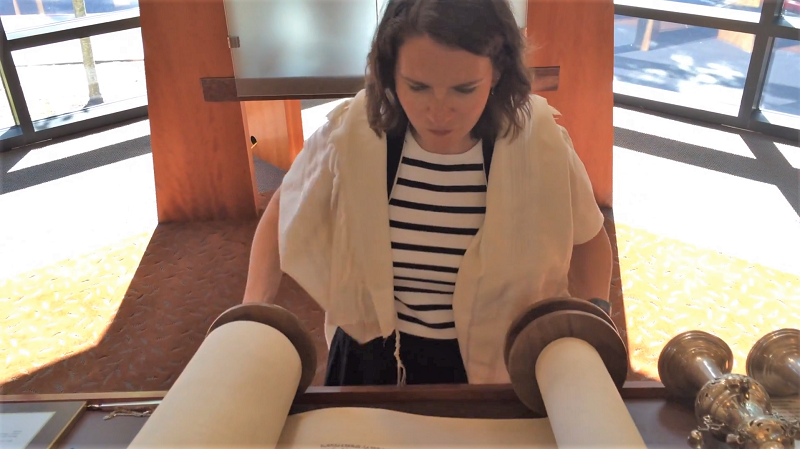I recently saw a Facebook memory pop up. It was a very frustrated me as a rabbinical student when I woke up one morning to go to class and found my computer locked in the midst of an epic system update. It was 30% done, and that meant I wouldn’t have been able to take my computer with me for classes or finish my homework, and basically being without my computer felt like a type of mental paralysis. This was pre-smartphone, so there was no backup option of using my phone to get work done. However, my computer hadn’t crashed; it was making itself better. When I got home that night, I had an extremely awesome working computer that was all updated and ready to do the work I needed. And these days either the updates happen faster, or I’ve figured out how to time them appropriately.

More and more things in our lives receive regular updates: our phones, our TVs, even our refrigerators connect to the internet for firmware updates. We’re always finding ways to take something and make it safer or more secure. Think of the number of car safety features that have become standard over the last decade or so. Now there are back-up cameras, automatic brakes, passing alert sensors . . . despite the too frequent use of cell phones while driving, we’ve never been more informed and aware as drivers. We don’t just update our digital lives. As information changes, health recommendations change, languages change, and books get new, revised editions. All this is to say that as our world changes, so does the information we need to be a part of it.
There is one book, however, that does not receive regular updates or revised editions. The Torah we read today is still the same Torah inspired by God and interpreted through Moses. In our parshah this week, we read the final sections of text from the fourth book of the Torah, Bamidbar. Parshiyot Matot and Masei begin with the discussion of the different vows Israelites might make, and then they detail the requests of the various tribes as they get ready to enter the Promised Land. The chapters end with the final placements of all the tribes as they prepare to divide their land inheritance.
As the text begins we find ourselves in this section of laws dealing with vows. Chapter 30 specifically deals with the vows of women. Basically, the Torah tells us that if a woman makes a vow while she is still young, her father can decide to validate the vow or invalidate it. The same then holds true for her husband; he too can choose whether or not her words are valid.
This stated subordination is certainly problematic for the world we live in, but it was troublesome to the sages in the Talmud as well. Already at that time they tried to limit the applicability of this law by restricting the time one could annul another’s vows. And yet, the law still exists in the Torah, and we read it year after year.
For better or worse, the scroll we call the Torah isn’t updated. We can’t change the words themselves because, as words of God, the story is static and unchanging. Fortunately though, we have rabbinic scholars who have worked for millennia and still work daily to understand the intent of the commandment, so that it can apply in a modern form to our lives today. In fact, this is the work of the Committee on Jewish Laws and Standards for the conservative movement.
While we might not change the main body of the United States Constitution, we have amendments that allow for new interpretations and even changes. In a similar way, the Torah is in a sense the first draft, and the Talmud (and even this drash) are the updates. That first draft is still critical. To update anything, we must start with a solid foundation. The Torah is our foundational document, and this week’s portion is a reminder that we continue to update it using the spirit and intention of the law in order to guide us in our lives today.



